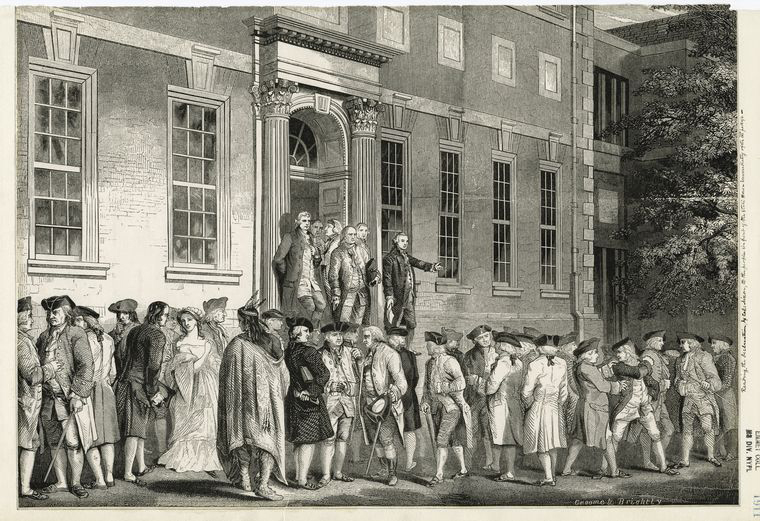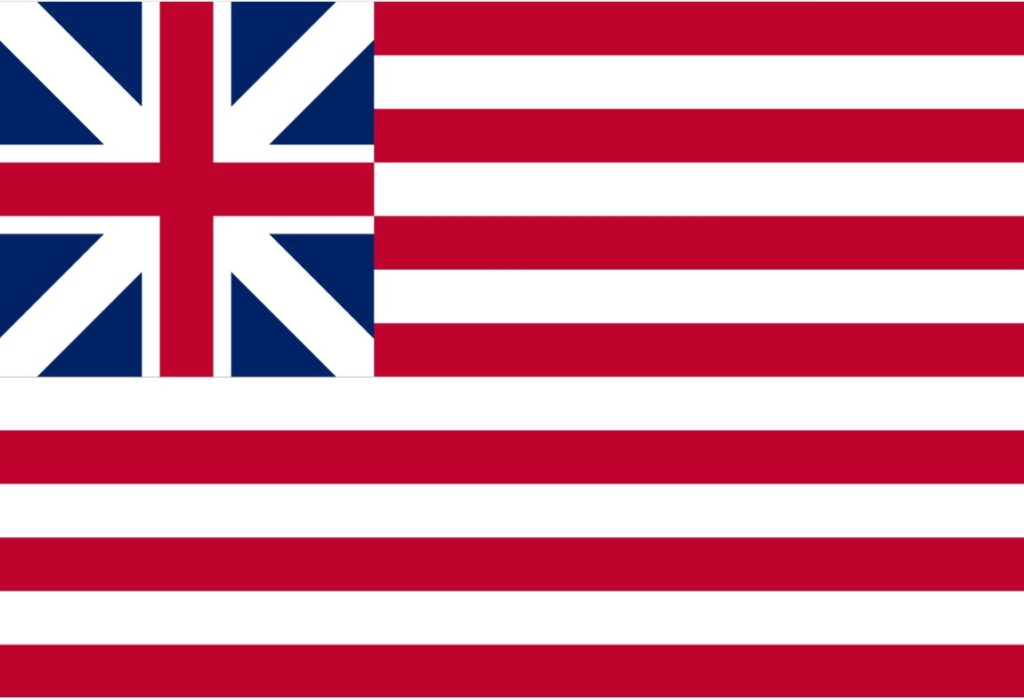The Maryland Constitutional Convention of 1776, renounces its royal charter, by promulgating its first constitution, containing a Declaration of Rights, Articles I, III, V, VI, VIII, XI, XV, XVI, XVII, XIX, XX, XXI, XXII, XXV, XXVIII, XXVI, XXIX, XXX, XXXI, XXXV, XXXIX and XL of which state,
- “That all government of right originates from the people, is founded in compact only, and instituted solely for the good of the whole.
- “That the inhabitants of Maryland are entitled to the common law of England, and the trial by Jury, according that law, and to the benefit of such of the English statutes, as existed at the time of their first emigration. …
- “… [E]lections ought to be free and frequent, and every man, having property in, a common interest with, and an attachment to the community, ought to have a right of suffrage.
- “That the legislative, executive and judicial powers of government, ought to be forever separate and distinct from each other.
- “That freedom of speech and debates, or proceedings in the Legislature, ought not to be impeached in any other court or judicature.
- “That every man hath a right to petition the Legislature, for the redress of grievances, in a peaceable and orderly manner.
- “That retrospective laws, punishing facts committed before the existence of such laws, and by them only declared criminal, are oppressive, unjust, and incompatible with liberty; wherefore no ex post facto law ought to be made.
- “That no law, to attains particular persons of treason or felony, ought to be made in any case, or at any time hereafter.
- “That every freeman, for any injury done him in his person or property, ought to have remedy, by the course of the law of the land, and ought to have justice and right freely without sale, fully without any denial, and speedily without delay, according to the law of the land.
- “That, in all criminal prosecutions, every man hath a right to be informed of the accusation against him; to have a copy of the indictment or charge in due time (if required) to prepare for his defence; to be allowed counsel; to be confronted with the witnesses against him; to have process for his witnesses; to examine the witnesses, for and against him, on oath; and to a speedy trial by an impartial jury, without whose unanimous consent he ought not to be found guilty. [emphasis added]
- “That no man ought to be compelled to give evidence against himself
- “That no freeman ought to be taken, or imprisoned, or disseized of his freehold, liberties, or privileges, or outlawed, or exiled, or in any manner destroyed, or deprived of his life, liberty, or property, but by the judgment of his peers, or by the law of the land.
- “That excessive bail ought not to be required, nor excessive fines imposed, nor cruel or unusual punishments inflicted, by the courts of law.
- “That a well-regulated militia is the proper and natural defence of a free government.
- “That standing armies are dangerous to liberty, and ought not to be raised or kept up, without consent of the Legislature.
- “That no soldier ought to be quartered in any house, in time of peace, without the consent of the owner;
- “That no person, except regular soldiers, mariners, and marines in the service of this State, or militia when in actual service, ought in any case to be subject to or punishable by martial law.
- “That the independency and uprightness of Judges are essential to the impartial administration of Justice, and a great security to the rights and liberties of the people;
- “That a long continuance in the first executive departments of power or trust, is dangerous to liberty; a rotation, therefore, in those departments, is one of the best securities of permanent freedom.
- “That no other test or qualification ought to be required, on admission to any office of trust or profit, than such oath of support and fidelity to this State, and such oath of office, as shall be directed by this Convention or the Legislature of this State, and a declaration of a belief in the Christian religion.
- “That monopolies are odious, contrary to the spirit of a free government, and the principles of commerce; and ought not to be suffered [allowed].
- “That no title of nobility, or hereditary honours, ought to be granted in this State.”
The Constitution of Maryland proper in Articles II requires,
- Ownership of 50 acres of land for the right of suffrage;
- The Constitution may not be changed except within the three months preceding an election for the legislature.
[restored 11/10/2024]
Subsequent Events:
Authority:
unanimous Declaration (of Independence), Paragraph 6
ccc-2point0.com/unanimous-declaration-of-independence
References:
“Chronology of Events, 1774-1804,” from The Debate on the Constitution, two volumes, Bernard Bailyn, ed., (New York: Library of America, 1993), 2:1031.
The Avalon Project : Constitution of Maryland – November 11, 1776
avalon.law.yale.edu/17th_century/ma02.asp
Constitutions of the Several states
www.thegreenpapers.com/slg/constitution.phtml


